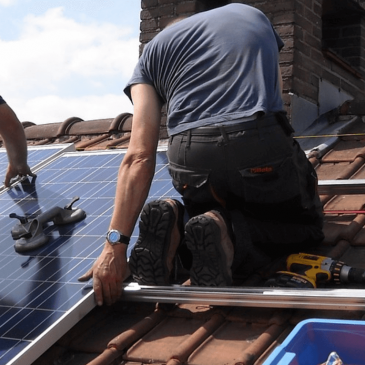Tracking Residential Solar Power and Storage Trends in 2024
Among the many sustainable energy sources, solar power stands out as one of the most promising. Over the years, advancements in solar technology and reductions in costs have made it increasingly attractive for both residential and commercial applications. However, despite all of its achievements, a lot of consumers still ask: Is solar worth it?
As we near the end of 2024’s first quarter, let’s examine the current trends in solar power and storage to determine its viability and worth in today’s energy landscape.
Solar Power Continues to Grow
The journey of solar power has been nothing if not remarkable. From its humble beginnings as an expensive and inefficient technology, solar panels have evolved into a mainstream energy solution. One of the primary reasons behind this transformation has been the significant decrease in the cost of photovoltaic (PV) modules. Improved manufacturing processes, economies of scale, and technological innovations have collectively contributed to this decline in costs.
In 2024, solar power continues to make its mark on the global energy landscape, with installations reaching unprecedented levels worldwide. Countries around the globe are embracing solar energy as a pivotal component of their renewable energy portfolios, which are largely being fueled by environmental concerns, energy security, and economic incentives. Moreover, advancements in solar panel efficiency and durability are enhancing the performance and longevity of solar systems to even greater heights than previously imagined, further bolstering the appeal of this revolutionary energy resource.
The Importance of Energy Storage in 2024
While solar power offers clean and abundant energy from the sun, one of its inherent limitations is intermittency. Solar’s energy generation depends on the availability and intensity of sunlight, which varies throughout the day and is absent at night. This intermittency poses challenges for solar’s stability and reliability. As a result, energy storage solutions, such as solar batteries, play a crucial role in mitigating this issue.
In recent years, energy storage technologies have made significant strides, with declining costs and improving performance. Lithium-ion batteries, in particular, have emerged as the frontrunner in the energy storage market, offering high energy density, rapid charging capabilities, and scalability. As a result, the coupling of solar panels with battery storage systems has become increasingly prevalent, enabling solar energy to be stored and dispatched when needed, even during periods of low sunlight.
With climate change altering weather patterns to the point that seasonal storms are more furious and frequent than ever, having access to dependable power when such storms cause interruptions in the local energy grid will become even more of a priority in 2024 and beyond.
Cost Considerations for Solar in 2024
When evaluating the overall worth of solar power, cost is always a fundamental factor. Historically, the upfront cost of installing solar panels has been a deterrent for many homeowners and businesses. However, as mentioned earlier, the cost of solar PV modules has plummeted in recent years, making solar installations much more financially accessible. And the availability of convenient financing options helps make solar more accessible and affordable to even greater numbers.
Another consideration is the fact that the return on investment (ROI) for solar systems has greatly improved over the years, thanks in large part to factors such as declining equipment costs, favorable government incentives, and rising electricity prices. In many regions, solar power has even reached grid parity, meaning it is cost-competitive with traditional fossil fuel-based electricity generation.
When combined with energy storage, the economics of solar power become even more compelling. Battery prices have followed a similar downward trajectory to solar panels, albeit at a slightly slower pace. Nonetheless, the declining costs of batteries, coupled with their ability to enhance the value proposition of solar installations through increased self-consumption and grid independence, make solar-plus-storage systems an attractive investment for many consumers. Plus, unlike previously, the cost of solar batteries is now taken into account with the federal solar tax credit.
Environmental Benefits for 2024 and Beyond
Beyond the financial considerations, solar power offers significant environmental benefits that make it much more Earth-friendly than conventional energy sources such as coal, oil, and natural gas. Solar energy is clean and renewable, and it produces zero greenhouse gas emissions during operation. By harnessing the power of the sun, we can reduce our reliance on fossil fuels, mitigate climate change, and preserve our planet for future generations.
Furthermore, solar installations can contribute to local job creation and economic development, particularly in regions with a strong solar industry presence. From manufacturing and installation to maintenance and support services, the solar sector offers a wide range of employment opportunities across the value chain.
Solar Power Has Never Been More Worth It
So, the question of whether solar power is worth it in 2024 has a resounding affirmative answer. With advancements in technology, declining costs, and increasing environmental awareness, solar energy has cemented its position as a viable and valuable energy solution for today as well as tomorrow. When combined with energy storage technologies, solar power offers a sound proposition for homeowners and businesses alike.
As we continue to track solar power and storage trends in 2024 and beyond, it’s clear that the future is bright for solar energy. By harnessing the abundant and inexhaustible power of the sun, we can create a more sustainable and resilient energy future for generations to come. So, if you’re considering whether solar is worth it in 2024, the answer is a very bright “yes!”

